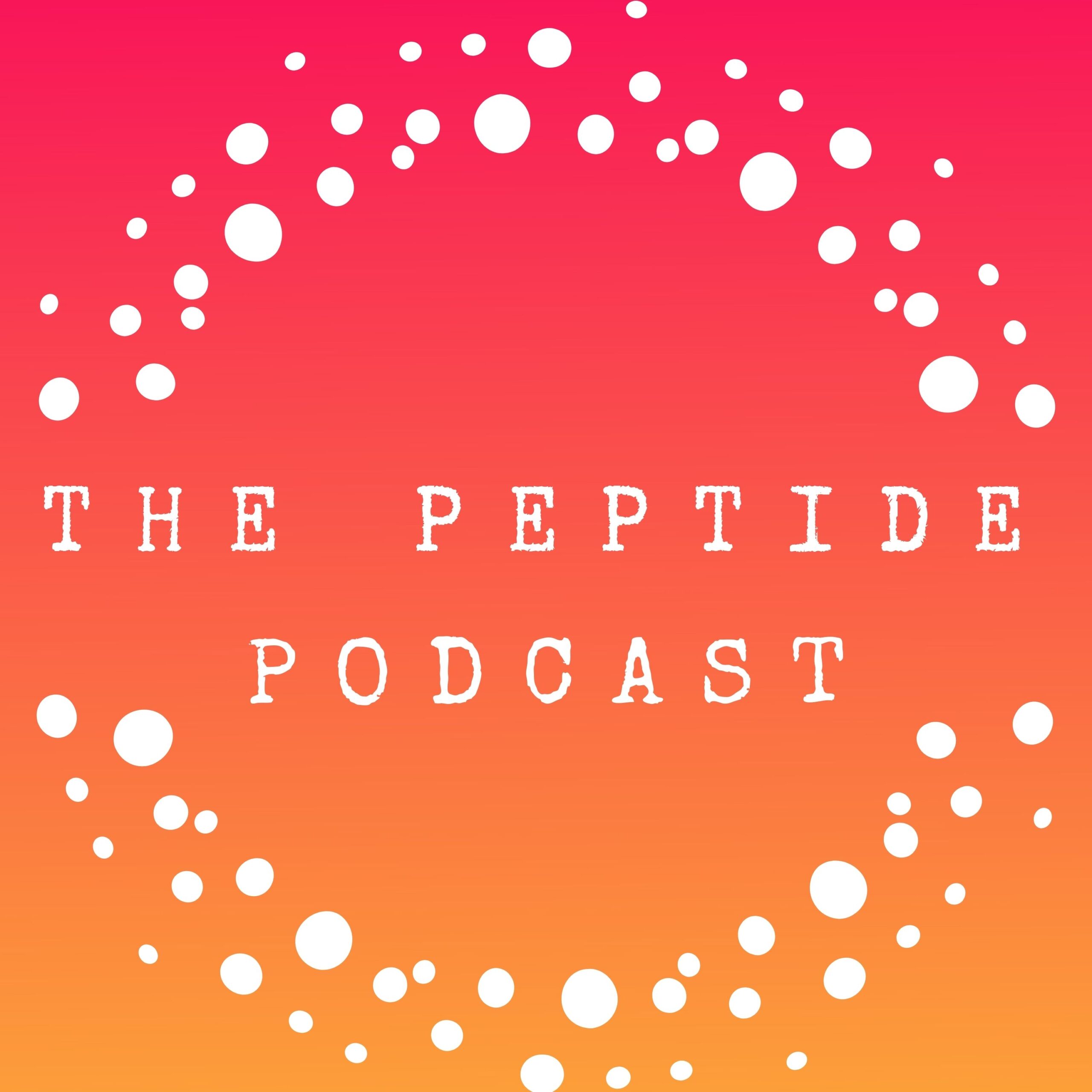Estimated reading time: 7 minutes
You’ve likely heard the excitement around peptides for skin care to help with anti-aging. But what do you know about peptides when it comes to your overall health and wellness? What is peptide therapy?
In this article, we’ll cover all there is to know about peptide therapy — what it is and it’s potential benefits and side effects.

What are peptides?
Peptides are short chains of amino acids. Amino acids combine to form proteins in your body. It’s important to remember that peptides and proteins are not the same. Peptides are tiny messengers that deliver instructions to your cells to perform certain processes.
What is peptide therapy?
Peptide therapy is the use of lab-made peptides as a means of triggering a specific reaction in your body. Peptide therapy aims to raise low peptide levels that can’t be replaced with supplements to help prevent or treat certain conditions.
What are the different types of peptides?
More than 80 FDA-approved peptides are on the market for diabetes, cancer, osteoporosis, and multiple sclerosis (MS). Common peptides are used to help increase natural human growth hormone (HGH) levels, gut health, and promote tissue healing in your body. There are other peptides for brain health, sexual wellness, and skin health. The following is a list of different types of peptides commonly prescribed:
- CJC 1295
- BPC-157
- DSIP
- Epithalon
- Ipamorelin
- MK-677 (Ibutamoren mesylate)
- Tesamorelin (Egrifta)
- Thymosin Alpha 1 (TA1)
- Thymosin Beta 4 (TB4 or TB500)
- Selank
- Semax
It’s important to note that many of the lab-made peptides mentioned above haven’t been extensively studied in humans. Further human studies are needed to assess the peptide’s benefits and safety profile before FDA-approved for use in humans is granted.
Does peptide therapy really work?
The following is a list of some benefits you could receive from peptide therapy:
- Improvement in skin firmness, elasticity, and tone
- Reduced body fat
- Increased natural HGH levels
- Weight loss
- Improved recovery from injury (e.g., helps repair soft tissues like tendons, ligaments, and muscles)
- Improved wound healing
- Decreased joint and muscle pain
- Improved sleep
- Decreased depression or anxiety symptoms
- Improved recovery after bowel resection surgery
- Decreased inflammation
- Improved sex drive (libido)
- Hair growth
- Enhanced memory and cognitive function (concentration and focus)
- Suppressed tumor growth
- Decreased toxicity of chemotherapy
- Lower blood pressure
- Improved bone strength
- Improved nerve damage (neuropathy)
- Improvement in eye disorders (e.g., dry eyes, corneal tears, and diabetic retinopathy)
How do I take peptide therapy?
Most peptides are given as subcutaneous (under the skin) injections. Peptide injections can be used at home. However, oral capsules, topical creams and serums, and intranasal sprays are available. Regardless of the method, it’s important to know that the frequency and dose will differ with each depending on its intended use.
What are the side effects of using peptides?
The side effects you may feel will vary depending on the peptide therapy you’re receiving.
But some side effects are common across most injected peptide therapies. Side effects can include:
- Swelling in your lower legs or hands (peripheral edema)
- Pain and swelling where peptide therapy was injected
- Redness at the injection site
- Itching at the injection site
The following side effects are serious and should be reported to your healthcare provider immediately:
- Allergic reactions (e.g., skin rash, itching, hives, or swelling of face, throat, lips, or tongue)
- Trouble breathing, chest pain, or sweating
- Feeling lightheaded
How long will it take for peptide therapy to work?
Unfortunately, there’s not a straightforward answer for this. People can start to see results within the first month of peptide therapy. After that, the changes you see will depend on the type of peptide therapy you and your healthcare provider choose is best for you.
If you’re curious how long it will take to see results, talk to your peptide specialist. They may be able to provide more information based on your situation.
How much does peptide therapy cost?
Peptide therapy can be expensive as your insurance does not cover it. The cost of your peptide therapy will vary depending on the peptide, dose, and length of cycle you’ve been prescribed. Some peptides are dosed daily while others are dosed twice yearly or cycled 3 months on, 1 month off.
An initial office visit or telemedicine visit and lab work are usually required to start peptide therapy. Your visit should include a review of your medical history, labs, current symptoms, and an evaluation to determine if you would benefit from peptide therapy. A physician can do your initial consult (MD, DO, or ND), nurse (RN, NP, DNP), or clinical pharmacist (PharmD) who specializes in peptide therapy.
You can buy peptide therapies online or at a pharmacy. However, if given a choice for your safety, you should buy your peptides from a credible compounding pharmacy. Compounding pharmacies must follow USP 797 guidelines to help protect people from getting contaminated or incorrectly made products. Compounding pharmacies are more costly than online suppliers, but the quality of ingredients and regulations offsets the costs.
The bottom line
Peptides are tiny messengers that deliver messages to your cells to perform certain processes. Peptide therapy is the use of lab-made peptides as a means of triggering a specific reaction in your body. Most peptides are given as an injection under the skin. The frequency and dose of each peptide therapy will differ depending on its intended use.
Peptide therapies have many benefits. You may start to see results within the first month of peptide therapy. The changes you see will depend on the type of peptide therapy you choose. Peptide therapy has a number of possible side effects, some of which can be serious. Be sure to discuss any questions or concerns you may have with your healthcare provider.
– – –
References
American Academy of Anti Aging Medicine. (n.d.). Thymosin beta 4.
Bidlingmaier, M., et al. (2010). Growth hormone. Handbook of Experimental Pharmacology.
Review All References
Diamond, L.E., et al. (2004). Double-blind, placebo-controlled evaluation of the safety, pharmacokinetic properties and pharmacodynamic effects of intranasal PT-141, a melanocortin receptor agonist, in healthy males and patients with mild-to-moderate erectile dysfunction. International Journal of Impotence Research.
Dominari, A., et al. (2020). Thymosin alpha 1: A comprehensive review of the literature. World Journal of Virology.
Errante, F., et al. (2020). Cosmeceutical peptides in the framework of sustainable wellness economy. Frontiers in Chemistry.
Food and Drug Administration. (2019). How drugs are developed and approved.
Gjurasin, M., et al. (2010). Peptide therapy with pentadecapeptide BPC 157 in traumatic nerve injury. Regulatory Peptides.
Gwyer, D., et al. (2019). Gastric pentadecapeptide body protection compound BPC 157 and its role in accelerating musculoskeletal soft tissue healing. Cell and Tissue Research.
Kolomin, T., et al. (2013). A new generation of drugs: Synthetic peptides based on natural regulatory peptides. Neuroscience & Medicine.
Mosińska, P., et al. (2017). Future treatment of constipation-associated disorders: Role of relamorelin and other ghrelin receptor agonists. Journal of Neurogastroenterology and Motility.
Muttenthaler, M., et al. (2021). Trends in peptide drug discovery. Nature Reviews Drug Discovery.
National Library of Medicine. (2022). Allergic reactions.
National Library of Medicine. (2022). Amino acids.
National Library of Medicine. (2022). Cancer.
National Library of Medicine. (2022). Diabetes.
National Library of Medicine. (2022). Diabetes and eye disease.
National Library of Medicine. (2022). Foot, leg, and ankle swelling.
National Library of Medicine. (2021). Multiple sclerosis.
National Library of Medicine. (2022). Osteoporosis.
National Library of Medicine. (2022). Subcutaneous (SQ) injections.
Perras, B., et al. (1999). Sleep and endocrine changes after intranasal administration of growth hormone-releasing hormone in young and aged humans. Psychoneuroendocrinology.
Philp, D., et al. (2003). Thymosin β4 increases hair growth by activation of hair follicle stem cells. The FASEB Journal.
Radevski, F., et al. (2019). Stable gastric pentadecapeptide BPC 157 in rats subjected to high salt (30%) diet for one month counteracts hypertension and compromised optic disc head circulation and following atrophy. The FASEB Journal.
Sarkisova, K., et al. (2008). Effects of heptapeptide selank on genetically-based and situation-provoked symptoms of depression in behavior in WAG/Rij and Wistar rats, and in BALB/c mice. Zhurnal Vysshei Nervnoi Deiatelnosti Imeni I P Pavlova.
Svensson, J., et al. (2000). The GH secretagogues ipamorelin and GH-releasing peptide-6 increase bone mineral content in adult female rats. Journal of Endocrinology.
Uchakina, O.N., et al. (2008). Immunomodulatory effects of selank in patients with anxiety-asthenic disorders. Zhurnal Nevrologii i Psikhiatrii imeni S.S. Korsakova.
United States Pharmacopeia. (n.d.). General chapter 797.
Xing, Y., et al. (2021). Progress on the function and application of thymosin β4. Frontiers in Endrocrinology.
SLU-PP-332
Today we’re taking a closer look at SLU-PP-332, a compound that’s gaining attention for its potential role in performance support and metabolic health. If you’re interested in burning fat more efficiently, supporting your mitochondria, or taking your workouts to the next level, stick around—this one’s for you. What Is SLU-PP-332? Let’s start with the basics.…
Thymosin Alpha 1, Chronic Fatigue and Lyme Disease
Today we’re going to talk about thymosin alpa 1, what it is, how it works, and why some doctors are using it to help those with Lyme disease. What Is Thymosin Alpha 1? Let’s start with the basics. Now we’ve talked about thymosin alpha 1 before in the context of immune health, but as a…
Continue Reading Thymosin Alpha 1, Chronic Fatigue and Lyme Disease
What to Expect on GLP-1 Medications
Today we’re diving into a topic that’s been everywhere lately: GLP-1 medications like semaglutide and tirzepatide for weight loss. You may know them by names like Wegovy, Ozempic, Mounjaro, or Zepbound. I want to give you a clear, realistic picture of what to expect—because while the media loves to highlight the dramatic before-and-after photos, the…
5-Amino-1MQ
Today, we’re taking a close look at 5-Amino-1MQ—a compound gaining attention for its potential to improve fat loss, metabolic health, and longevity. We’ll break down how it works, the science behind it, and what that could mean for your health. Let’s get started. So, What Is 5-Amino-1MQ? Now, just to clear something up—5-Amino-1MQ isn’t actually…
Breaking Through GLP-1 Weight Loss Plateaus
Welcome to The Peptide Podcast. Today we’re going to talk about something that almost everyone on a GLP-1 journey hits eventually, the weight loss plateau. It starts like this: you begin a GLP-1 like semaglutide or tirzepatide, and for the first few weeks or months, the weight seems to fall off. You’re eating less, not…
Continue Reading Breaking Through GLP-1 Weight Loss Plateaus
Injectable L-Carnitine
In today’s episode we’ll talk about L-Carnitine. What is L-carnitine, what does it do, and why are more people choosing to inject it instead of taking it as a pill? Let’s break it down. L-carnitine is a compound made from the amino acids lysine and methionine, and its main job is helping your body turn…

Leave a Reply